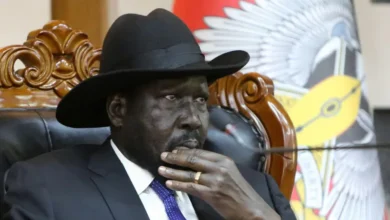#NeverBiden: What’s the campaign against the US approach to Israel about?

In the run-up to the 2016 United States presidential election, a set of mainstream Republicans worried about the rise of Donald Trump kicked off what came to be known as the “Never Trump” movement.
In essence, they were making clear that they were so fundamentally opposed to what Trump – a property baron-turned-TV personality – stood for, that they would never vote for him.
Now, a new “Never Biden” movement is starting to erupt in the US as the country heads towards the 2024 election, shaped in good measure by President Joe Biden’s response to Israel’s war on Gaza.
On social media, it has taken the form of a hashtag – #NeverBiden. But with some donors signalling unhappiness with Biden’s approach to the war on Gaza, this campaign could have real-world implications for the incumbent president’s bid for re-election at a time when he is already trailing former President Trump in key swing states.
So what’s behind the Never Biden movement? Are there parallels with the Never Trump campaign? And what’s next?
What’s behind the Never Biden movement?
The #NeverBiden movement first emerged in about 2020 from the progressive wing of the Democratic Party, many of them Bernie Sanders supporters who opposed the candidacy of Joe Biden as he emerged as the presumptive nominee.
But as Biden won the nomination, and Sanders supported him, that campaign largely withered away.
Then came Israel’s war on Gaza – and Biden’s response to it – which has drawn criticism from supporters of both Israel and Palestine.
The revival of the #NeverBiden hashtag was initially prompted by Biden’s threat to suspend military aid to Israel if were to invade Rafah, Gaza’s southernmost town where 1.5 million Palestinians have been sheltering from the war after they were forced out of other parts of the strip by Israel’s relentless bombardment and ground assaults.
However, last week, the Biden administration approved $1bn in military aid to Israel, and the United Nations reports roughly 800,000 people have fled Rafah since Israel launched a military operation in the area on May 6. This does not include the $26bn in military aid to Israel that was approved by Congress late last month.









